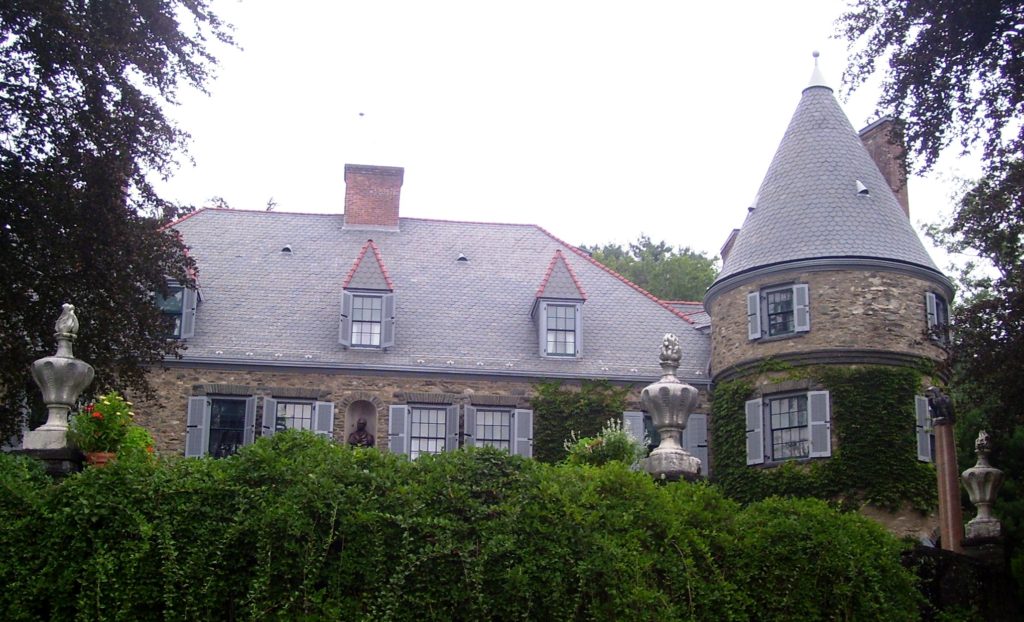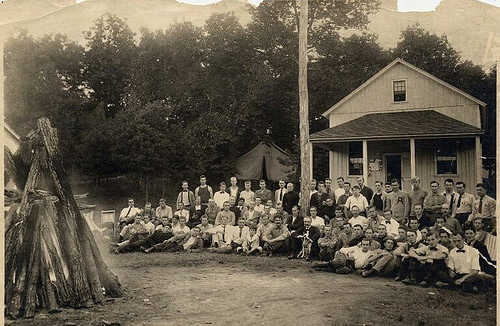Ask just about anyone to name a historical figure in forestry, and the name Gifford Pinchot is sure to pop up. Gifford Pinchot (1865-1946) is commonly called the father of American forestry—the first trained forester working in the U.S., the originator and first chief of the U.S. Forest Service, and the conservation mentor of Teddy Roosevelt.

Pinchot came from a wealthy family. His father was a successful wallpaper merchant in New York City who built a summer home in 1886 on the banks of the Delaware River in Milford, Pennsylvania. He called the estate Grey Towers, and for several decades the family spent their summers roaming the 102 acres of the estate. Summers at Grey Towers taught Gifford Pinchot to love forests and to care deeply about the need for their conservation.
Gifford wasn’t the only Pinchot interested in conservation—family members before and after him were also conservation leaders. So, it came as no surprise that Pinchot’s son, Gifford Bryce Pinchot, donated Grey Towers and its accompanying lands to the U.S. Forest Service in 1963 to become a conservation center.
The new center was called the Pinchot Center for Conservation Studies (now shortened to just the Pinchot Center for Conservation). The idea then, as now, was simple and direct, as reflected in the current mission statement:
“The mission of the Pinchot Institute is to strengthen forest conservation thought, policy, and action by developing innovative, practical, and broadly-supported solutions to conservation challenges and opportunities. We accomplish this through nonpartisan research, education, and technical assistance on key issues influencing the future of conservation and sustainable natural resource management.”

The dedication ceremony occurred on September 24, 1963. What should have been a sleepy little event attended by a few local politicians and conservation professionals became a national event when President John F. Kennedy agreed to deliver a commemoration address. This was the first stop on an 11-state tour to promote conservation. At Grey Towers, an adoring crowd of more than 12,000 was on hand as Kennedy’s helicopter landed in a field a few hundred yards from the dedication site. The president took the dais and began extolling the virtues of both Gifford Pinchot and conservation in general.
“Above all, [Pinchot] was a gifted, driving administrator, transforming a minor Federal bureau into a dynamic, purposeful agent of national policy…. In the space of a few short years, he made conservation an accepted virtue in the nation’s conscience.”
“But Pinchot’s contribution will be lost if we honor him only in memory….For our industrial economy and urbanization are pressing against the limits of our most fundaments needs: pure water to drink, fresh air to breathe, open space to enjoy, and abundant access of energy to release man from menial toil.”
“The dispute is no longer one of principles or goals—it is now merely a question of pace and means. And no one maintains that the obligation to use our resources efficiently and thoughtfully depends solely on the Federal Government….Conservation is the job of us all.”
Kennedy wasn’t there long—70 minutes—and he lived only another two months. But the Pinchot Institute has continued to prosper. In collaboration with the U.S. Forest Service, the institute provides a prominent voice for rational, science-based management of the nation’s natural resources.
References:
Dwyer, Dan. 1963. The Day JFK Was Here. Port Jervis Union-Gazette, September 24, 1963. Available at: https://fhsarchives.wordpress.com/2013/09/13/9241963-the-pinchot-institute-dedication-ceremony-the-day-jfk-was-here/. Accessed June 25, 2019.
Kennedy, John F. 1963. Remarks of the President at Pinchot Institute for Conservation Studies, Milford, Pennsylvania, September 24, 1963. Available at: https://www.pinchot.org/about_pic/history. Accessed June 25, 2019.
Pinchot Institute for Conservation. History. Available at: https://www.pinchot.org/about_pic/history. Accessed June 25, 2019.
